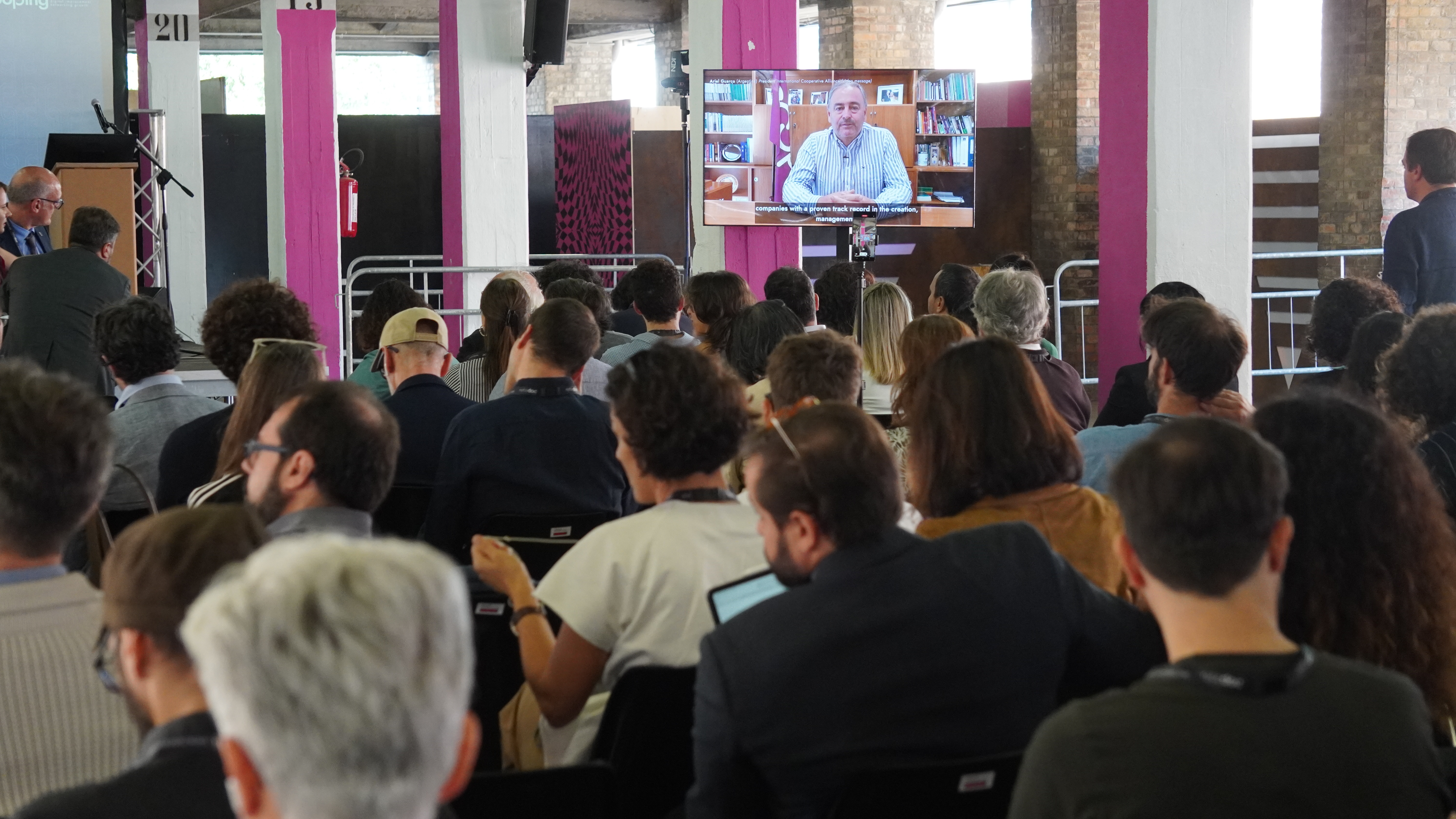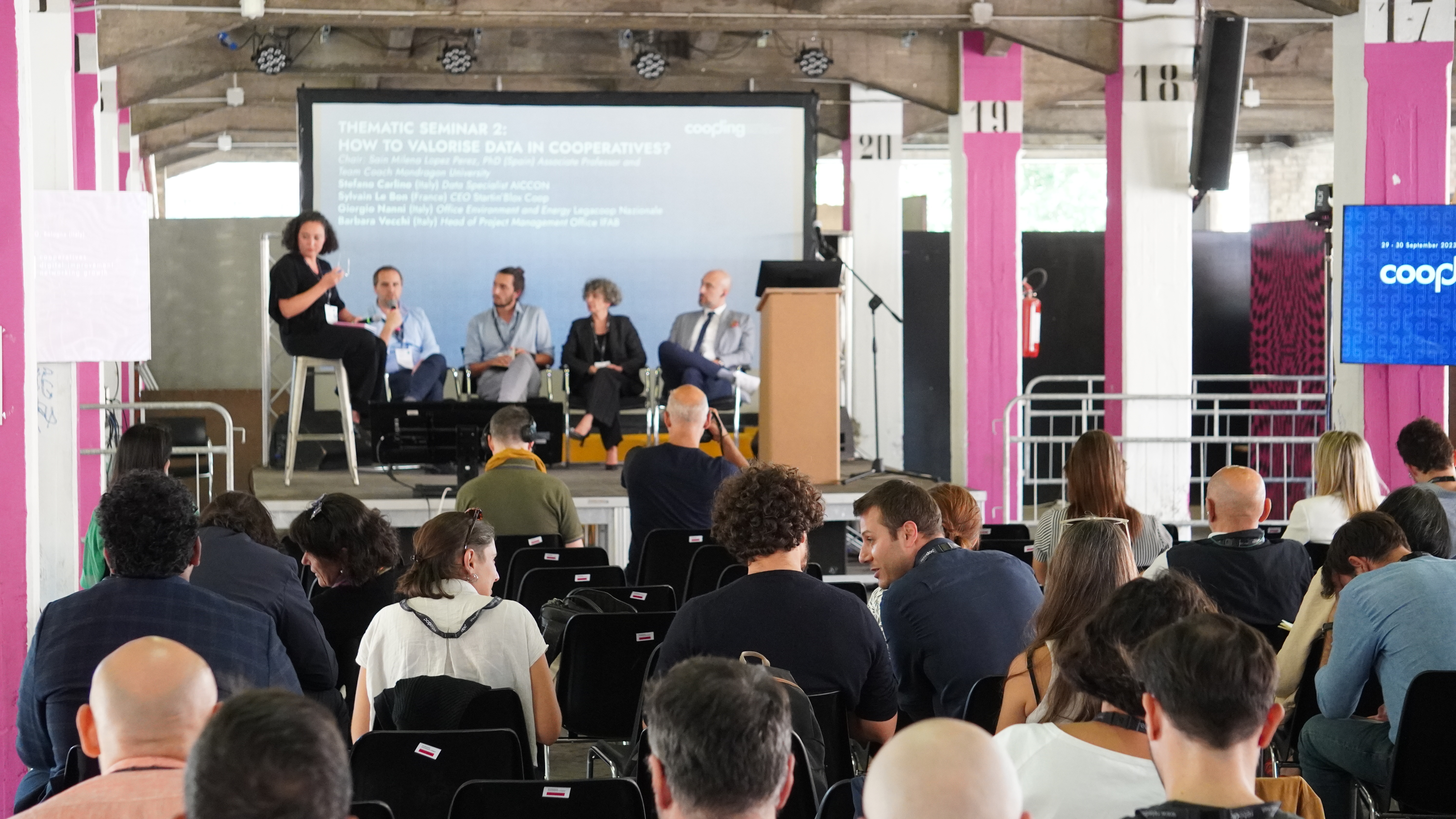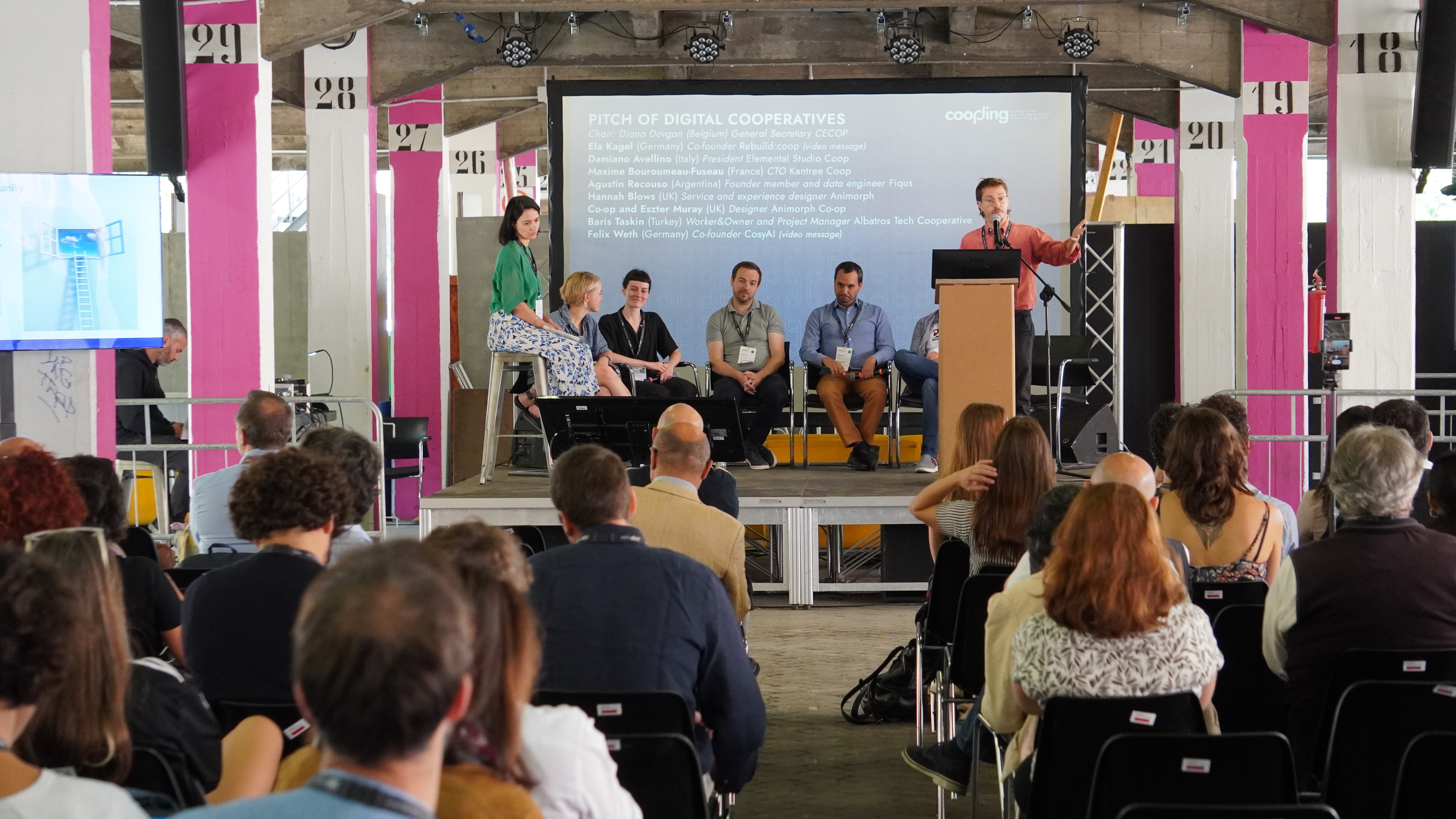COODING, an acronym for COOperatives Digital Improvement & Networking Growth, took place last on 29 and 30 September 2023 in Bologna, Italy. The event was co-organised by Fondazione Centro Studi Doc, CECOP, Fondazione PICO, and AlmaVicoo, and supported by CICOPA, Cooperatives Europe and ICA.
The goal of the organisers was to enhance the inter-cooperation around the use of digital and new technologies in cooperatives. Successfully, the event gathered 400 cooperators which more than 130 were in person - coming from all around Europe but also beyond - and the rest online. Participants were mainly workers in tech cooperatives, or in cooperatives undergoing technological transformations. They joined to discuss ideas, projects, and concrete next steps on how to put technological tools at the service of a democratic, inclusive, and fair economy.
“Today we are in the midst of another revolution in terms of technology, which we do not yet know what will bring to us as humanity. […] In this sense, COODING is a magnificent experience, […] the start of significant advances based on inter-cooperation [...].” said ICA President Ariel Guarco in his opening message.

A common thread during this two-day dense and focused interventions (see programme) was that technology is not neutral and that an alternative to the fixed paradigm of technology exists. Thereby cooperatives can decide how and for what to use it. In this context, cooperatives can positively impact the development of fair, democratic, inclusive technologies, and for a common good. At the same time, to face the inevitable digital transformation of the economy there is a great potential to better support the digitalisation of cooperatives through technologies developed by cooperatives and guarantee the competitiveness of digital and tech cooperatives in the market.
The first day of the event was dedicated to presenting examples of cooperatives in the tech sector, existing financing, training, and educational tools to support the development of these cooperatives, as much as calling on decision-makers' attention and interest in the phenomena.
The first half of the day was dedicated to setting up and understanding the opportunities in the political landscape of the digital transition for cooperatives.

During the morning roundtables, it was highlighted on one hand the importance of the role that technologies can play in harnessing the potential of mutualism that is innate in cooperatives. At the same time, cooperatives shall preserve democracy in the digital world.
“This is an important challenge for cooperatives which have an idea of economy and participation that lends itself to digital reality” in the words of CECOP President, Giuseppe Guerini.
While cooperatives have the capacity to embrace the technological transition providing particular attention to the human and social challenges that it implies, there is a need to improve the infrastructure to support this transformation, by facilitating access to capital and welcoming generational change.
According to Ana Aguirre, president of ICA Youth Network, “worker cooperatives are intrinsically generationally oriented. Worker ownership is accessible to young generations of workers and ownership is temporary to the job duration until it is passed over to the younger ones.”
During the roundtable, ‘pitch of digital cooperatives’, six cooperators were invited to present their cooperatives. Examples from Italy, the UK, France, Germany, Turkey, and Argentina showcased the diversity of digital and tech tools and services.

From these examples, it is evident that technology can be used to positively impact society. Some of these tools are developed starting from the clients’ needs and to the benefit of the community, including vulnerable people. For example, the ‘Cross Sense’ platform developed by the UK worker cooperative Animorh Co-op, a wearable augmented reality cognitive aid that combines sensory inputs (such as sound and sight) to help slow memory decline and improve recall.
In the afternoon session, speakers shared their experiences and existing tools related to financial opportunities for tech cooperative start-ups, transparent and manageable data sharing, and accessibility to generate knowledge, reinforce mutualism, and enhance democratic governance and participation.
COODING paved the way for the cooperative movement to think about how to support the development of tech cooperatives and ensure matchmaking between them and the other sectors. This issue was tackled on the second day when tech cooperators met to brainstorm on the future steps to be taken.







 Employment & Social Inclusion
Employment & Social Inclusion  Entrepreneurship
Entrepreneurship Sustainable Growth
Sustainable Growth 


